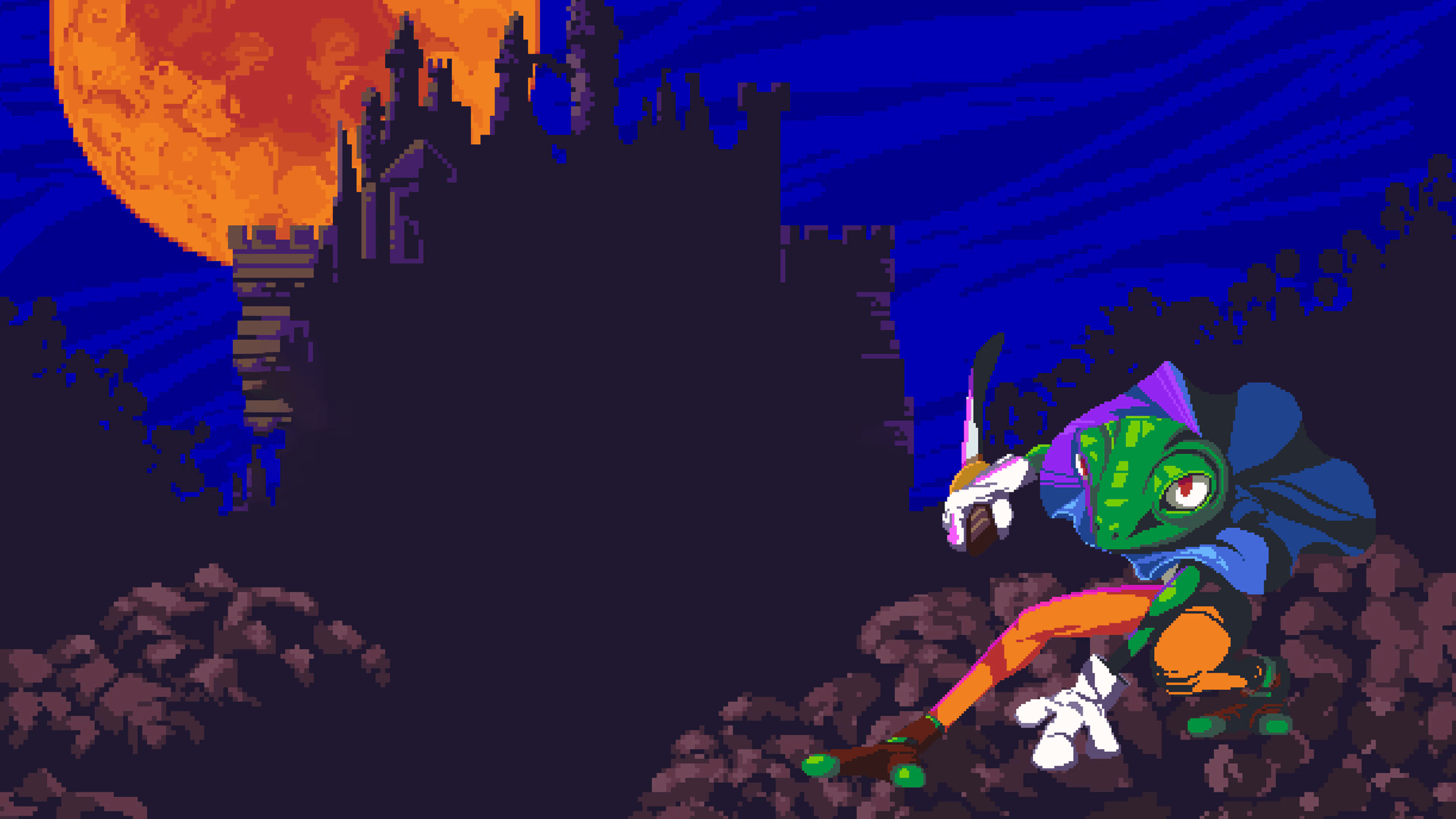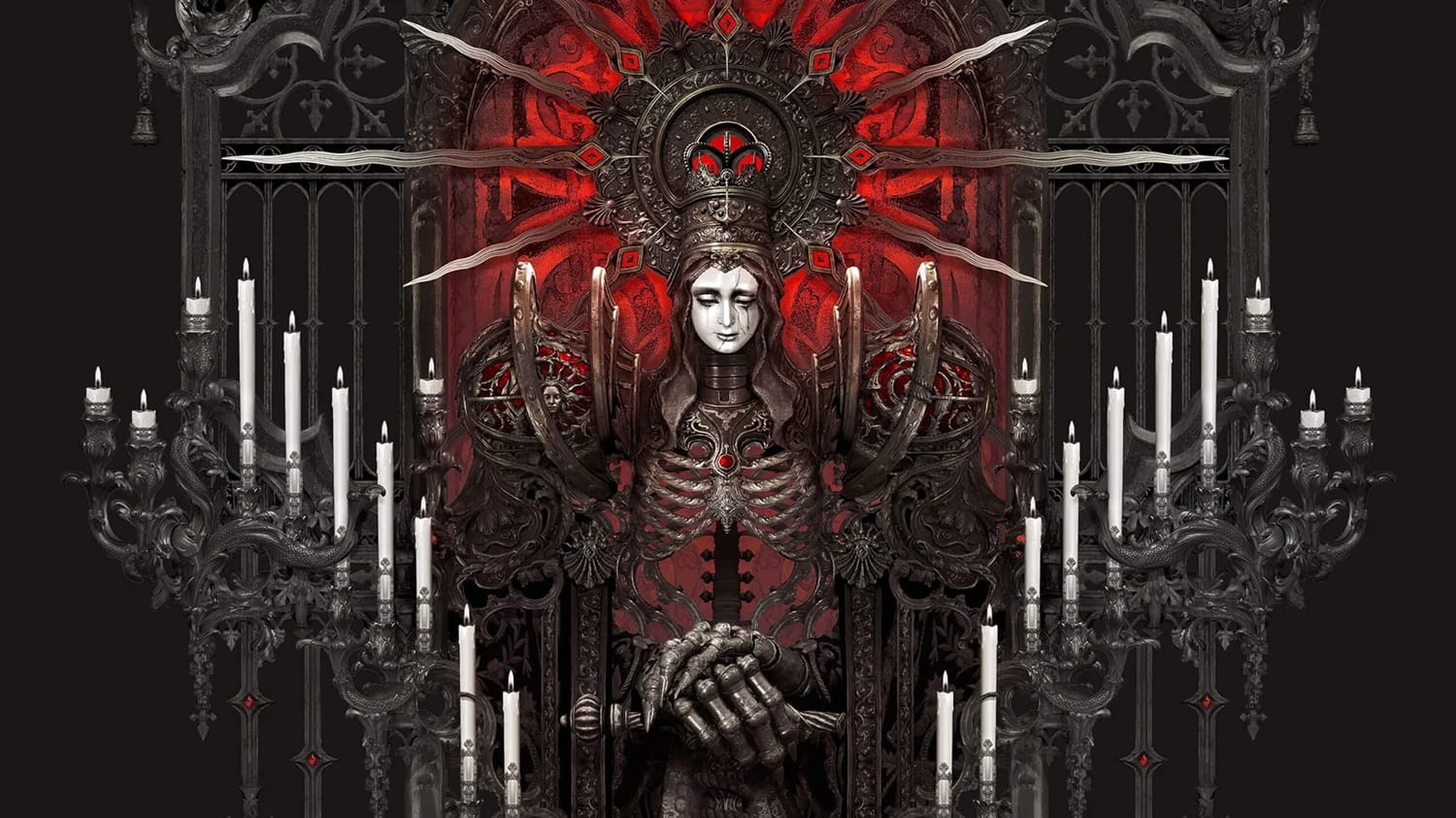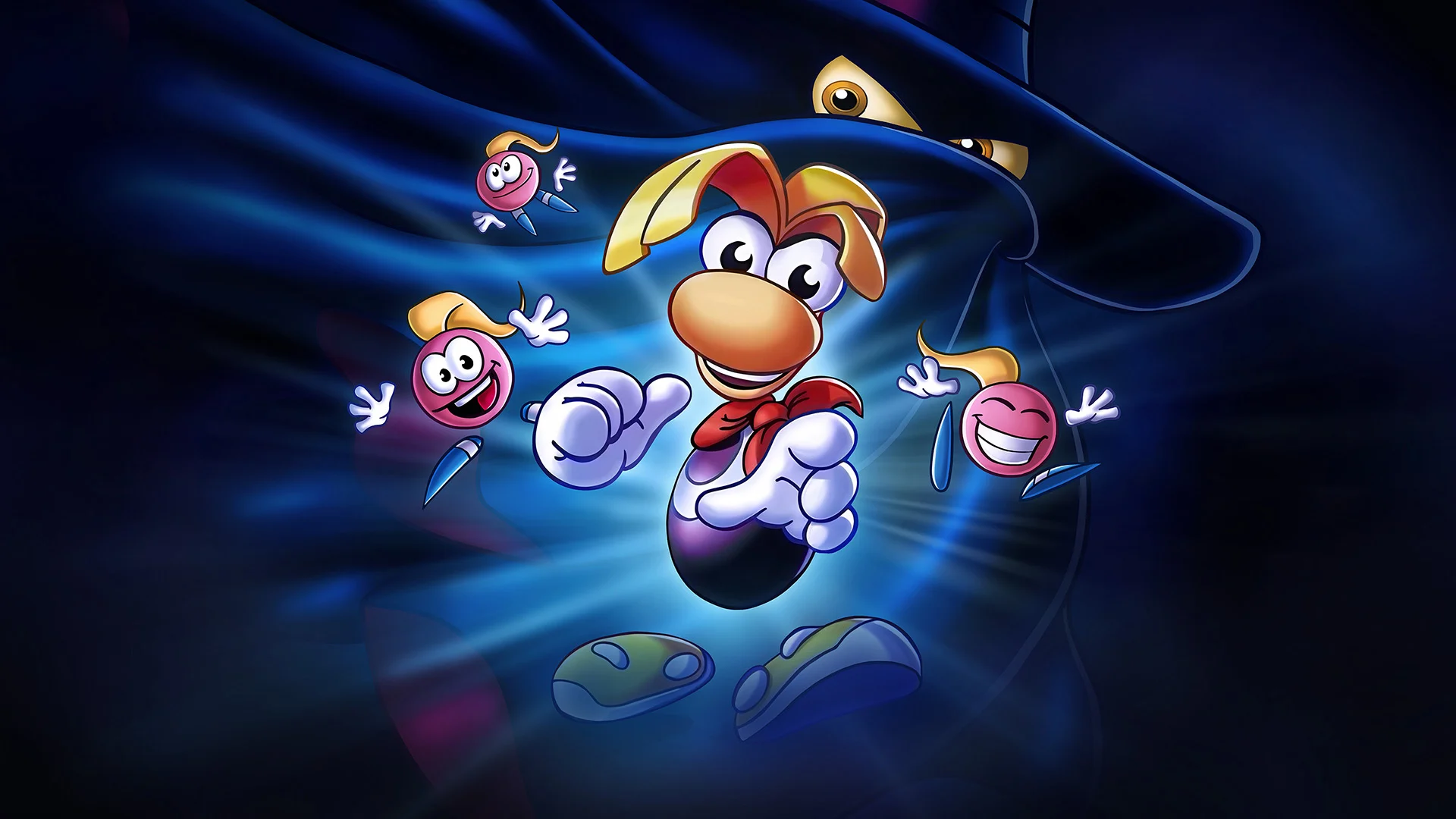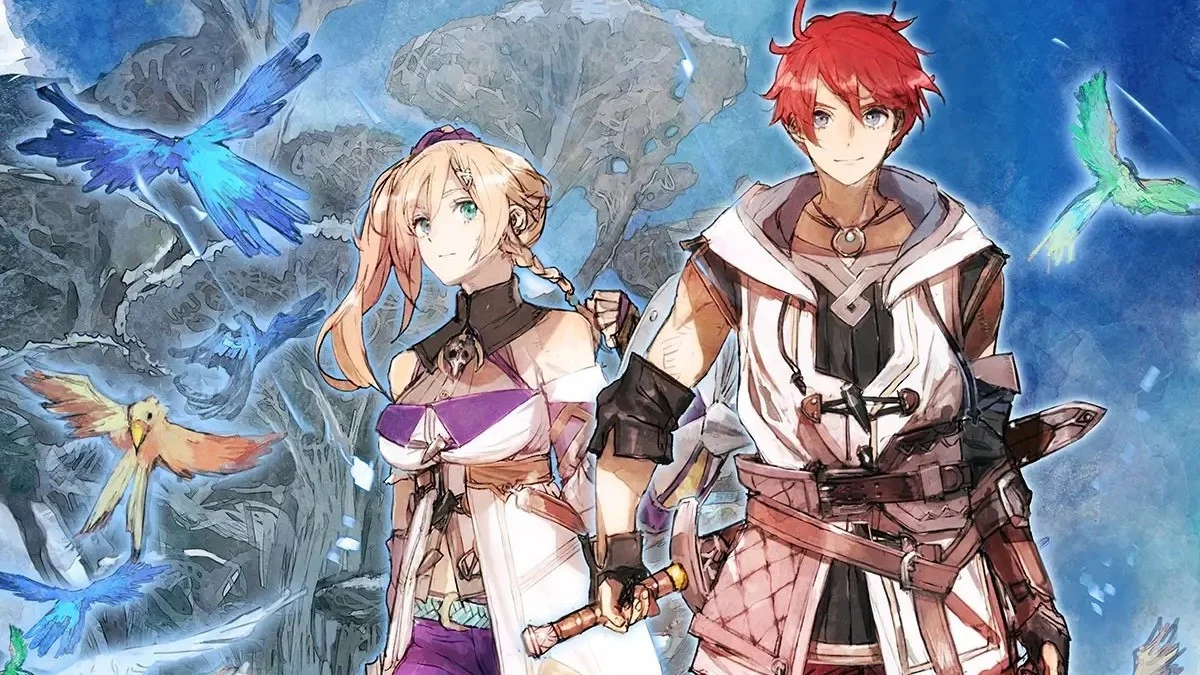Sometimes a game comes around that really shakes things up. That’s the case of Frogue by Brazilian developer Wired Dreams Studio. Incredibly different and positively weird and hard to figure out at first, it all sinks in very quickly once you spend some time with it. Granted, it’s a bit hard to pinpoint what it is exactly without comparing it to a whole bunch of different games.
At first glance, it reminded me of Dandara, a gem of an indie game released by another Brazilian studio, Long Hat House, where movement isn’t what you’re used to – you’re required to aim and jump from block to block at specific angles, and in order to attack, you have to cross the enemy’s path before landing at your next spot. I know, that sounds like a pretty annoying way to move around, but given the central premise of Frogue, it makes brilliant sense.
The basic gist is close to what the Castlevania games used to be all about: a dark castle full of evil emerges from the depths of hell every blue moon and there’s a secret order whose sole job is to vanquish evil. Swap the Belmonts for the frog in question and it’s the premise of this game. You start off at the outer layers of that den of evil and have to slowly pluck your way inside, but the catch is if you die, you have to start all over.

Yeah, the name Frogue isn’t a play on words with “rogue” for nothing since it is one at heart. Then again, with the aforementioned movement mechanic and other bits of gameplay, it feels much more like its own thing that can’t be quite categorized. It’s got elements of bullet hell shooters for one, wherein you’re forced to keep moving and precisely dodge incoming attacks, and if it all sounded too easy for you, throw in some time manipulation for a change.
Your hero can temporarily freeze sections of the screen for a few seconds, and that comes into play when trying to defeat foes who tend to shift in and out of reality, offering a short window when their defenses are open. Like any game worth its salt, Frogue has you dealing with all sorts of situations where your powers have to be used at once, making it an exciting and at the same time chaotic experience, especially the further you get in the castle.
Presentation-wise, Frogue feels sparse. It’s certainly influenced by the 8-bit games of old, but there’s a decidedly bleak approach to it. Environments are pitch black with the exception of walls and enemies, and even those are hardly as colorful as your playable protagonist. There’s also little to no music to speak of, which works in building dread all throughout your time playing. And with the procedural nature of the level layouts, it makes jumping from square to square seem dangerous and unknown. It’s damn cool and moody.
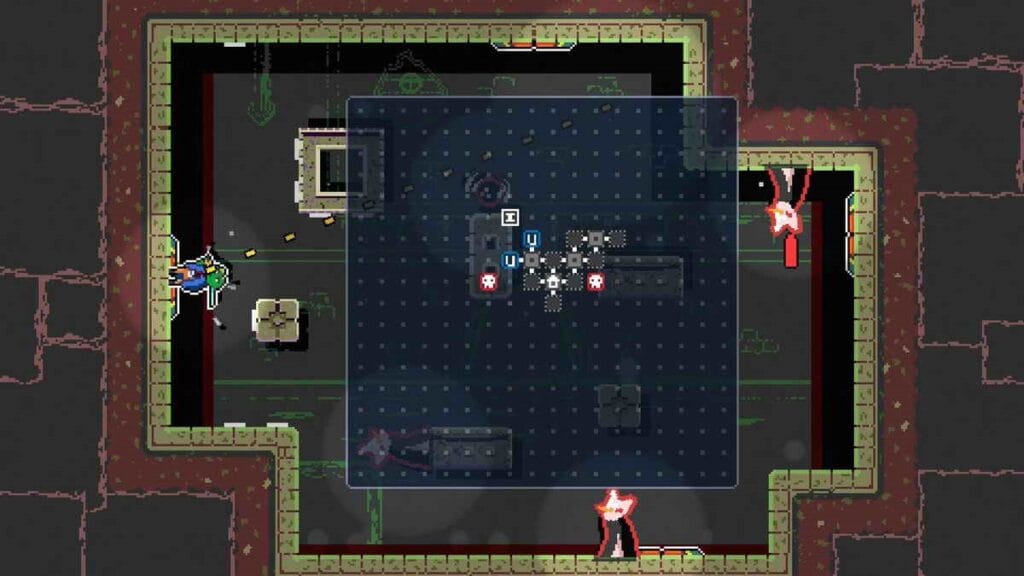
Frogue’s supposedly slower pace implied by the way you move is anything but that, and once you get used to it – really, it only takes a few minutes – it becomes second nature and a joy to pull off, even more so when the combos start flashing on screen. The combat feels fantastic and comes into its own once you’re out of the initial areas, at a point when every one of the game’s systems start gelling with each other, resulting in the hard to pinpoint genre you could slot Frogue into.
In fact, the end result is so good it’ll make you feel silly to try and do that. The developers of this didn’t bother trying to shoehorn their game under any specific monniker, so why should we? Just breathe and trust me, don’t waste any time trying and just have fun with it. You’re gonna love it!

